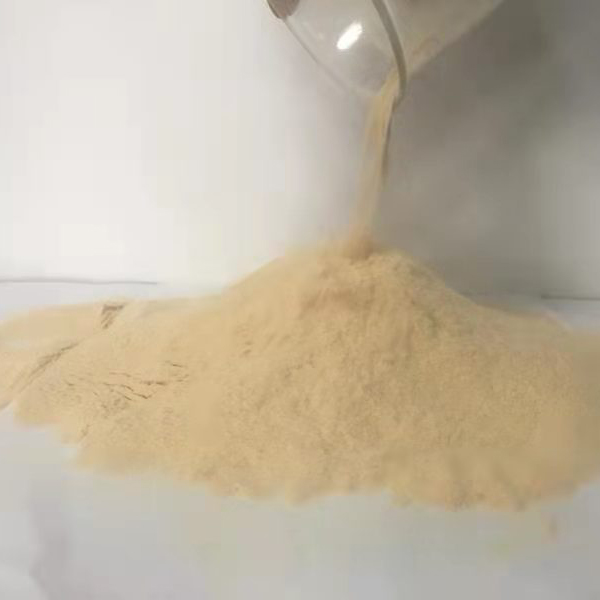
News
aug . 14, 2024 05:39 Back to list
Exploring the Role of Versene as an Effective Chelating Agent in Various Applications
The Role of Versene as a Chelating Agent
Chelating agents are compounds that can form multiple bonds with a single metal ion, effectively grabbing it and holding it in a stable complex. Among these agents, Versene, a brand name for ethylenediaminetetraacetic acid (EDTA), is one of the most widely recognized and utilized. This article will explore the importance of Versene as a chelating agent, its chemical properties, applications, and its significance in various industries.
Chemical Properties
Versene, or EDTA, is a colorless, crystalline solid that is soluble in water. Its chemical structure includes four carboxylic acid groups and two amine groups, allowing it to function effectively as a bidentate ligand. This means that it can bind to a metal ion from multiple sites, creating a more stable complex. The ability to chelate various metal ions—such as calcium, magnesium, iron, copper, and lead—makes Versene a versatile tool in numerous applications.
Applications in Industry
1. Water Treatment One of the primary uses of Versene is in water treatment processes. It helps to remove heavy metals from water sources, preventing toxicity and promoting environmental safety. By binding with these metals, Versene assists in the precipitation and removal of contaminants, thus improving the quality of drinking water and industrial effluents.
2. Agriculture In agricultural settings, Versene is used to enhance the bioavailability of essential micronutrients in soil. When applied to crops, it helps in chelating micronutrients like iron and zinc, making them more accessible to plants. This is particularly important in soils that are alkaline or have high levels of calcium, where these nutrients may be rendered insoluble and unavailable for plant uptake.
versene na chelating agent

3. Cosmetics and Personal Care Versene is also a common ingredient in various cosmetic and personal care products. It acts as a stabilizer, preventing the adverse effects of metal ions that can lead to degradation of the product. Its chelating properties help improve the efficacy of other ingredients and enhance the overall shelf life of formulations.
4. Pharmaceuticals In the pharmaceutical industry, Versene plays a crucial role in drug formulation and safety. It can be used to control trace metal impurities in drugs, ensuring that the final product is safe for consumption. Additionally, its ability to bind with metal ions can be utilized in treatments for heavy metal poisoning, where it aids the body in excreting harmful substances.
5. Food Industry Versene is commonly used as a preservative in food products. It binds with metal ions that can catalyze the oxidation of food, thereby extending shelf life and maintaining product quality. It also plays a role in improving the color and texture of foods by preventing the formation of brown pigments.
Environmental Considerations
While Versene has numerous benefits, its widespread use does raise environmental concerns. The chelating properties of EDTA mean that it can bind to essential metals in ecosystems, potentially leading to nutrient imbalances. Therefore, it is crucial to manage its usage effectively to mitigate any adverse ecological impacts.
Conclusion
Versene is a powerful chelating agent with a wide range of applications across multiple industries, from water treatment to agriculture and cosmetics. Its ability to bind metal ions effectively makes it an invaluable tool for improving product safety, enhancing bioavailability of nutrients, and maintaining quality. However, as with any chemical compound, responsible usage and consideration of environmental impacts are essential to ensure that the benefits of Versene are realized without compromising ecological health. As research continues to evolve, new applications and insights into this versatile chelating agent may further enhance its relevance in the future.
-
Polyaspartic Acid Salts in Agricultural Fertilizers: A Sustainable Solution
NewsJul.21,2025
-
OEM Chelating Agent Preservative Supplier & Manufacturer High-Quality Customized Solutions
NewsJul.08,2025
-
OEM Potassium Chelating Agent Manufacturer - Custom Potassium Oxalate & Citrate Solutions
NewsJul.08,2025
-
OEM Pentasodium DTPA Chelating Agent Supplier & Manufacturer High Purity & Cost-Effective Solutions
NewsJul.08,2025
-
High-Efficiency Chelated Trace Elements Fertilizer Bulk Supplier & Manufacturer Quotes
NewsJul.07,2025
-
High Quality K Formation for a Chelating Agent – Reliable Manufacturer & Supplier
NewsJul.07,2025
